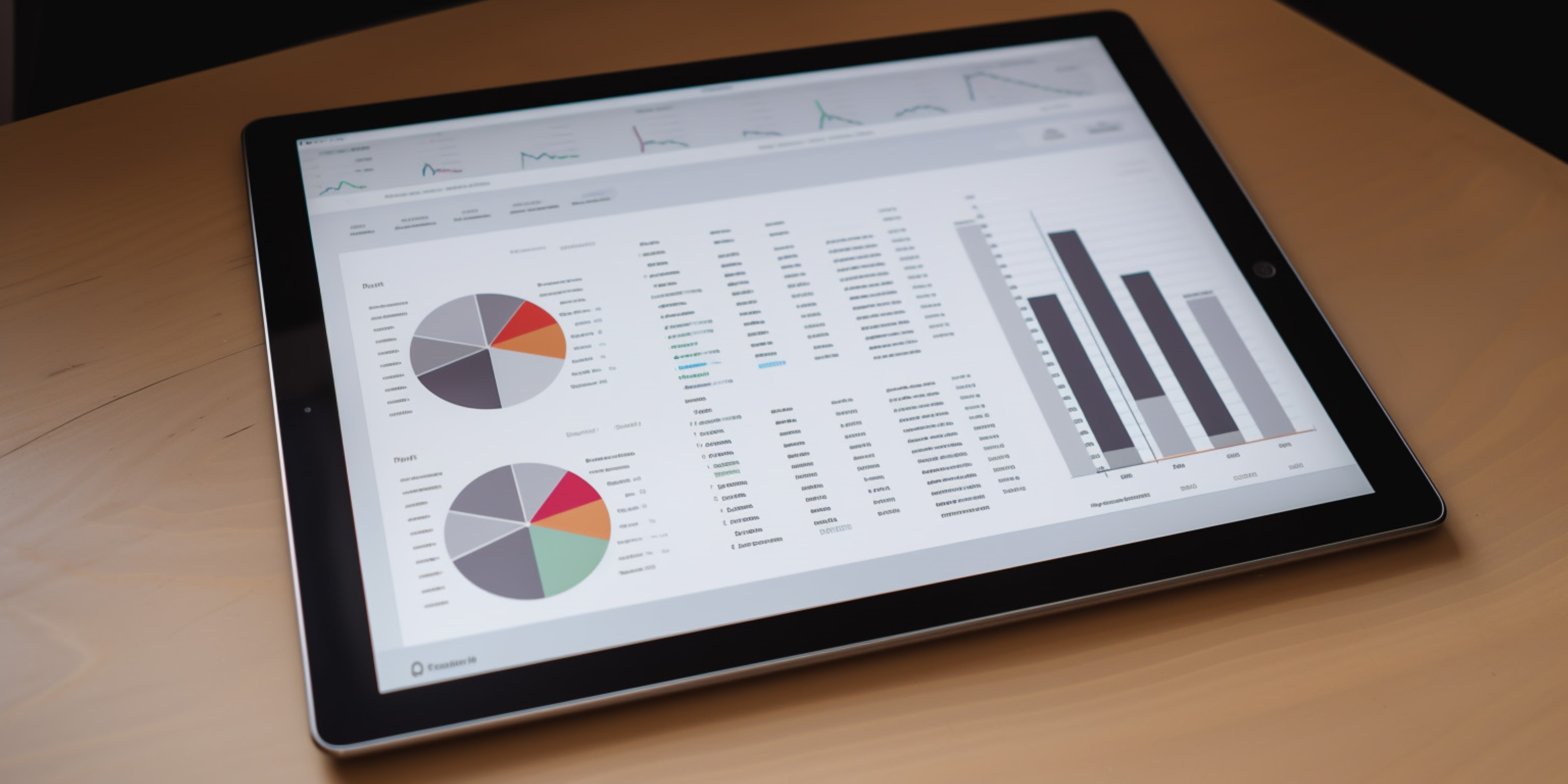The CFO’s evolving role in the age of real-time business intelligence


Book a free consultation now!
The days of CFOs simply managing ledgers and preparing monthly reports have become history. Today's finance chiefs operate at the crossroads of strategy, technology, and business intelligence, using real-time data as their primary competitive weapon. While organizations face increasingly complex market conditions, the contemporary CFO has become the CEO's strategic right hand, converting financial insights into decisive action with remarkable speed and accuracy. This shift represents more than just expanded duties—it's a complete rethinking of how finance drives organizational growth.
The contemporary CFO's broadened sphere of impact
Financial leadership has experienced a dramatic transformation, with CFOs extending their reach well past traditional accounting boundaries. Current CFO duties and responsibilities now include strategic planning, technology innovation, and cross-functional leadership that influences organizational performance in previously unthinkable ways.
From traditional bookkeeper to strategic business architect
The CFO role has undergone a deep transformation during the past decade, reshaping how finance contributes to organizational success. What once centered on backwards-looking activities (think month-end closes, audit preparation, and ensuring regulatory boxes were checked) has expanded into something far more dynamic. Today's finance leaders find themselves at the strategy table, wielding data analytics to guide major business decisions and directly contributing to revenue growth initiatives.
This shift reflects a broader recognition that finance teams possess unique visibility across all business functions, making them natural candidates for strategic leadership. Where CFOs once spent their time reconciling accounts and preparing compliance reports, they now evaluate market opportunities, assess competitive positioning, and design performance metrics that actually drive business outcomes rather than simply measure what already happened.
Deloitte surveyed 600 global finance leaders and found that companies dedicate almost half of their time to creating and updating reports, while only 18% spend time communicating results to business stakeholders. These findings highlight that, for many organizations, a significant portion of finance’s efforts remains focused on backward-looking documentation rather than forward-thinking analysis. However, there is a growing awareness that shifting this focus—and applying financial intelligence more strategically—can become a powerful driver of business transformation.
Critical capabilities of today's finance executives
Contemporary financial leaders must develop a comprehensive skill portfolio that reaches far past traditional accounting knowledge. The expanded CFO tasks require expertise in several areas:
- strategic thinking – involves connecting financial metrics with business results and market potential. Consider how working capital improvements can generate funding for innovation projects,
- technology expertise – means understanding advanced analytics, automation, and digital systems that enable financial transformation,
- adaptive leadership – requires guiding finance teams through constant change while preserving operational excellence,
- cross-functional partnership – demands skill in working with other departments to create integrated planning and decision-making processes.
These capabilities allow CFOs to convert financial data into strategic action. Take the manufacturing CFO who spotted declining margins through real-time dashboards and quickly identified automation opportunities that reversed the trend within three months.
Managing information overload in data-rich organizations
Today's finance leaders confront extraordinary challenges handling the massive information flows within current enterprises. Effective CFO responsibilities now include creating strong data governance structures that convert overwhelming information streams into useful intelligence. This means implementing organized approaches to data management that guarantee information stays accurate, accessible, and relevant for decision-makers. Smart CFOs establish clear data ownership, quality standards, and analytical frameworks that distinguish meaningful signals from irrelevant noise.
Practical results of strategic financial leadership
Organizations whose CFOs accept their expanded strategic responsibilities show measurable improvements in performance and flexibility. McKinsey research demonstrates that companies with financially knowledgeable strategic leadership survived the 2008 financial crisis more successfully than competitors, setting themselves up for stronger recovery. These finance leaders don't just report performance—they actively influence it through data-informed decisions that affect everything from product development to market expansion.
Primary forces transforming CFO responsibilities
Multiple powerful trends are combining to change how finance functions operate and create value. These drivers are fundamentally altering CFO roles and responsibilities in ways that generate both challenges and opportunities for progressive financial leaders.
Technology-driven change requirements
Technological progress has revolutionized finance operations, generating new opportunities for automation, analysis, and insight creation. Deloitte reports that robotic process automation can significantly reduce time spent manipulating data, while artificial intelligence offers to replace repetitive tasks with higher-value activities. This technological evolution demands that CFOs become digital advocates who can assess, implement, and use advanced tools to improve decision-making capabilities.
Stakeholder expectations for predictive insights
Today's investors expect CFOs to guide them through what's coming next, not just report what already happened. They're increasingly sizing up companies by examining growth trajectories and future potential rather than dwelling on historical performance metrics alone.
This shift means CFOs must now master advanced data analytics to bring clarity to strategic decisions, optimize how resources get allocated, and spot opportunities others might miss. Boards and executive teams have raised the bar considerably—they want finance leaders who can read market signals early and flag emerging opportunities while competitors are still catching up. The reasoning is straightforward: when business conditions change rapidly, analyzing yesterday's numbers won't help anyone make smart bets about tomorrow. Companies that rely too heavily on historical analysis often find themselves a step behind in building sustainable competitive advantages.
Market pressure for rapid response
Business volatility requires faster financial decision-making to maintain a competitive position. With conditions changing quickly, organizations that can rapidly analyze situations and shift resources gain substantial advantages over slower competitors. This reality has transformed CFO roles and responsibilities from periodic financial reviews to continuous monitoring and quick response. The most effective finance leaders create systems that provide immediate visibility into performance metrics, enabling dynamic resource allocation that maximizes returns.
Growing regulatory complexity and compliance requirements
Financial institutions face an increasingly complex web of regulations that continues to expand across multiple jurisdictions. CFOs today must balance the demanding task of building advanced monitoring and reporting infrastructure while keeping operational overhead manageable. These systems need to track everything from capital adequacy ratios to anti-money laundering protocols, often requiring real-time data processing and detailed audit trails.
Rather than viewing these mandates as pure cost centers, smart finance leaders recognize the hidden value in compliance investments.
Real-time data capabilities revolutionizing financial leadership
Financial intelligence that updates in real-time has reshaped how CFOs think about their role within organizations. Instead of relying on historical data to make decisions, finance leaders now have the tools to become proactive strategic partners who can actually influence organizational performance as events unfold.
From scheduled reports to always-on monitoring
Moving away from the traditional monthly or quarterly financial check-ins toward continuous dashboard monitoring changes the entire game for finance teams. CFOs can now catch emerging trends, spot unusual patterns, and identify new opportunities while they're still developing—rather than discovering them weeks or months after the fact when it's often too late to act effectively.
Companies implementing continuous monitoring capabilities gain significant advantages in decision speed and quality. A retail CFO using real-time sales monitoring identified underperforming product lines within days rather than waiting for month-end reports, enabling immediate merchandising changes that saved quarterly performance.
Advanced forecasting and what-if analysis
Sophisticated analytics capabilities have transformed financial forecasting from educated estimates to detailed modeling. With AI and machine learning, CFOs can now create multiple scenarios with detailed financial projections under various market conditions to prepare contingency plans that strengthen organizational resilience. They can identify leading indicators by recognizing early warning signs of changing business conditions before they affect financial results. Resource optimization becomes possible by directing investments toward opportunities with the highest probability of strong returns.
Streamlined financial operations through automation
The shift in Chief Financial Officer responsibilities from building reports to generating insights, often using AI-based tools, enables finance teams to deliver greater value through strategic guidance rather than transaction processing.
Dynamic resource optimization
Rather than waiting for quarterly reviews to adjust investments, progressive CFOs use real-time data to continuously optimize resource deployment. Modern CFO roles and responsibilities transform budgeting from an annual exercise to an ongoing optimization process that improves overall business performance and competitive positioning.
Essential skills of the data-driven CFO
CFOs must develop data-related competences enabling them to leverage information effectively for strategic advantage. These skills connect technology, collaboration, and change management capabilities.
Technology understanding that goes past Excel
Modern CFO roles and responsibilities require knowledge of:
- data architecture – designing how financial and operational data is structured, stored, and flows across the organization,
- analytics platforms – leveraging advanced tools to process and analyze vast datasets for faster, smarter decision-making,
- visualization applications – converting data into actionable and attractively presented insights.
Partnership skills across departments
According to McKinsey, the most effective finance leaders collaborate closely with colleagues, particularly CEOs and CHROs, to direct capital toward attracting and retaining talented employees.
Working with IT, operations, marketing, and other functions to ensure information flows throughout the enterprise? The most successful finance leaders build strong relationships with functional heads and create shared objectives that align data initiatives with strategic priorities. When a technology company's CFO partnered with the marketing team to implement attribution analytics, the collaboration revealed customer acquisition cost inefficiencies that, once addressed, improved profitability.
Data analysis and narrative communication
The ability to translate complex financial information into compelling business stories has become a critical component of effective financial leadership. Current CFO responsibilities include:
- Communicating insights to drive action. For instance, after identifying declining margins in a product line, the CFO presents a case to the operations team for revisiting supplier contracts.
- Identifying what matters most to different stakeholders and personalizing financial stories accordingly. Example: while investors hear a forward-looking growth narrative, the CFO crafts a risk-mitigation story for the audit committee, focused on cash flow resilience.
- Combining analytical precision with narrative skill to make complex information accessible and actionable For example, in an all-hands meeting, the CFO uses simple visualizations and analogies to explain how cost management today will enable future innovation investments.
The most effective finance leaders combine analytical precision with narrative skill to make complex information accessible and actionable.
Overcoming barriers to real-time financial transformation
While the advantages are obvious, most organizations find themselves stuck when trying to roll out real-time financial capabilities. Finance leaders spearheading digital transformation efforts need to recognize these hurdles and develop concrete strategies to move past them.
Legacy system challenges
The biggest headaches typically stem from trying to make decades-old financial systems work alongside current analytics platforms. Picture a finance department running on systems installed in the early 2000s, with additional modules bolted on over the years - each speaking a different technical language.
These disconnected environments create substantial integration headaches that can derail transformation projects before they gain momentum. Smart CFOs tackle these constraints by breaking modernization into manageable phases, focusing first on the capabilities that deliver immediate value while building comprehensive technology roadmaps. This approach lets them address pressing business requirements without losing sight of their broader strategic vision.
Middleware platforms offer a practical alternative path forward. These solutions create bridge layers between existing systems and new analytics tools, eliminating the need to rip out and replace fundamental infrastructure components that still function adequately.
Organizational resistance to evidence-based decisions
Financial professionals accustomed to traditional reporting cycles may question continuous monitoring approaches, while executives comfortable with instinct-based decisions may resist data-driven recommendations. In other words, moving from intuition-based to evidence-based decision making often encounters significant organizational resistance. Addressing this cultural dimension of transformation requires CFOs to demonstrate early wins. But the most important part may include involving key stakeholders in system design, providing comprehensive training for the team, and creating well-balanced incentives that reward data-driven behaviors.
Information quality and consistency requirements
Clean, consistent information forms the foundation of effective real-time financial intelligence. Many organizations struggle with inconsistent definitions, duplicate records, and information scattered across multiple systems. Successful transformation requires implementing comprehensive data governance frameworks that establish clear ownership, quality standards, and maintenance procedures. A manufacturing company's finance team spent six months standardizing product hierarchies and cost allocations before implementing real-time profitability analysis—an investment that paid dividends through dramatically improved decision quality.
Resource limitations and step-by-step implementation
Achieving transformation with limited resources requires careful prioritization and staged implementation approaches focusing on high-value opportunities. Starting with specific high-value applications like cash flow monitoring or expense management often provides the quickest returns that fund subsequent initiatives. Prioritization frameworks should consider factors like potential financial impact, implementation complexity, and strategic alignment to identify the most promising initial opportunities for redefining CFO roles and responsibilities through technology.
How RST can help you understand your financial data
What does a CFO do? Becoming a CFO today requires data analytics and using automated reporting through customizable dashboards. These Chief Finance Officer responsibilities changed fundamentally in recent years, enabling companies to understand their financial data, and taking more accurate decisions while saving valuable time. Dedicated platforms automating data collection and standardization, then presenting insights through intuitive real-time dashboards enable modern CFO to focus on strategic analysis rather than report creation.
By partnering with RST, your finance team can leverage AI-powered analytics to identify trends, anomalies, and opportunities that would remain hidden in traditional reporting. Contact us today to start transforming your CFO roles and responsibilities from backward-looking accounting to forward-looking strategic leadership.


